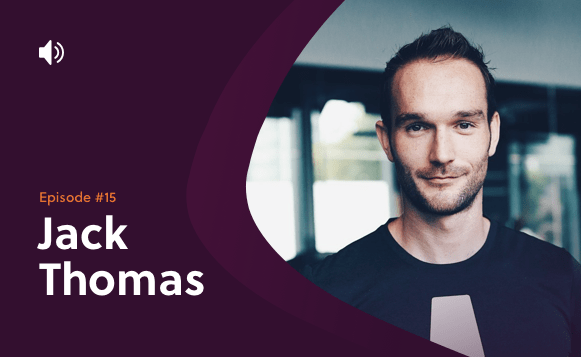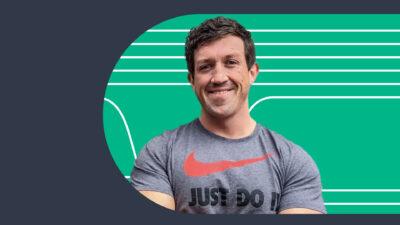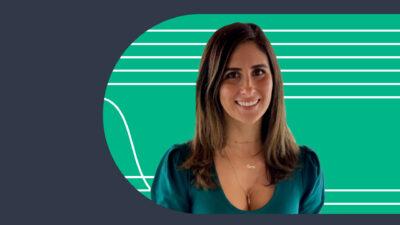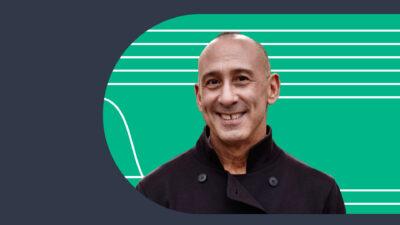Jack Thomas is the founder and CEO of BASE, a boutique fitness studio based in Bangkok. He is also the host of the fantastic Fitness Business Asia Podcast which you can listen to here.
In this episode, Jack talks about some of the factors that helped BASE win Asia’s Gym of the Year in 2018, including how tracking your member’s results will ensure success, why you need a strong sales manager and the secret behind keeping values consistent as you scale.
Subscribe Where You Get Your Podcasts
Transcript
Kevin: Okay Jack Thomas, welcome to the show.
Jack: Kevin, thank you for having me.
Kevin: Great to have you here. Well, maybe let’s just kickoff maybe give us a little bit of background on yourself and then we’ll learn a little bit more about BASE Gym.
Jack: Sure thing. I always and try to make this story as quick as I can. So 15 years ago I came backpacking to Thailand. I was teaching English for a short while then setup a clothing expo business which I ran for about six or seven years. 2008 and 2009, so when the global economic crisis time the business took a down turn. I was looking for something different to do. I noticed a few personal trainers in Bangkok that seem to be doing well but the overall standard of personal training wasn’t good here. So I went back to the UK, got my qualifications and came back to a very quiet, immature, underdeveloped industry in Bangkok. Started working for a small studio, that small studio became a big studio, and I kind of worked my way through the ranks so I went from a coach, to fitness manager, to managing director learning the business in that gym. Then about 4 years ago decided that I’d like to set up my own brand, and my own business so I left that company and started working full-time on BASE. We opened our first location almost exactly three years ago, I think it is tomorrow is our anniversary, and the second location a year after that, then our third location a year after that. Yeah, a crazy 15 years I guess in Thailand, really, really happy of where I am at and really proud of what we’ve done at BASE and what the team continue to do every day.
Kevin: So really the topic we want to cover today is you won Asian Gym of the Year about a year ago. And we really just want to get down to the basics of what made your gym and what made your three studios now a success. So maybe let’s start by just tell me a little bit about BASE and what it’s all about.
Jack: Yeah, so BASE as I’ve mentioned we have three studios in central Bangkok. BASE is a mixed of high intensity interval training, so for that we use treadmills. I guess kind of like [unclear – 01:52] but Orangetheory in the way we do our interval training sets, rowing machines and bikes. And then we combine that with strength training, so for that we use dumbbells, kettle bells, TRX, barbells, bodyweight and the like. We have some classes that our strength base, some that are cardio base, and some that are strength and cardio. Our kind of mix of cardio and strength is something that makes us a little bit different, a little bit unique, but also we are big on tracking the results of our clients so we have a monthly session where we do a body composition scan for each client. We also do a range of cardio and strength tests now. Up to now we’ve been doing that just pen and paper and the front desk staff putting these results into PDFs and send it to the clients. For the last year we’ve been working on technology that will help us track our client’s results. We’ve been working that for about a year. I think it is going to be an ongoing project. We just released it into one of our studios about a month ago. It has been received really, really well so we are on the process of rolling that out to the other two studios. Once that’s done and once that’s working comfortably we are looking international expansion from there. We also have a personal training as well so our business is pretty much a 50-50 split in terms of revenue between group classes and personal training.
Kevin: Cool. Obviously, you are doing a lot of these tracking of results and monthly assessment. Is that something you’re doing from the start? Would you say that’s one of the key factors in you being successful?
Jack: Yeah, I think so. It is something that really makes us different. It makes us stand out. It is really interesting to kind of see how the original vision has developed from day one people are asking us, “What’s different about BASE?” On a personal level, it is going to be the best gym in Bangkok. The best gym in the region but I didn’t really have an idea of exactly what would make us the best. By the time we opened I decided on our concepts and also I thought it was really important to track our client’s results. You know, you look at a lot of group classes, and you go in, you go sweat on, you might have a heart rate monitor, you know how many calories you’ve burn. But for most group class concepts you don’t really know exactly how much stronger you are getting, and how much fit you are getting. So it is kind of evolved and developed how we’ve recorded that. At first we had people writing it on boards and we put it into Excel spreadsheets for the clan. Something that lasted for about a week or so before we realized it would be just too much work. So then we went to a monthly assessment whereby clients would come in, do an hour session, which will be a mixture of cardio and strength assessment. They would write down on paper and then we would again manually put that into PDFs and send it to clients. Now, [unclear – 04:12] and also it made testimonials really strong because we can say, “Okay, John’s cardio has improved by 23%, his strength has improved by 43%, and he has lost 4.3% body fat”, so it gave us this really strong powerful testimonials. Clients were [unclear – 04:28] because they could see exactly how much they were improving.
I mean, like a 60-day program for example. We do one of these assessments at the beginning, one at the middle to see how they are going, and to make sure things are working and then one at the end. We kind of realized from this people really wanted this information, and it was nice to be able to offer to that to all of our clients, nudge personal training clients. That kind of proved the concept to us then we decided we wanted to roll the how into each of our classes. So rather than having that every month as a monthly assessment we will find a way with technology to integrate that into each class so that’s what we’ve been working on. So yeah, it was part of the original vision but it seems really cool just kind of see it grow and develop. And now we’ve moved into the tech side of it. There are so many different ways that we can use the data that we are collecting to kind of make a more exciting and kind of like a more sticky experience to the customers. Yeah, it’s been cool to see them evolve and we’re really excited for the future of the technology we’ve been working on.
Kevin: Cool, so I supposed results are a big part of your member experience. What else would you say are the big differentiators you’ve got in terms of member experience?
Jack: Recording the results is a big differentiator. The way that we combine high intensity interval training and strength training, you know, we do HIT as it’s supposed to be done so we would do like short sharp burst, 15 seconds, 20 seconds with a long rather than your typical circuit training style. So we develop our way of doing HIT and strength which is what is unique to us. I think those two things that are truly unique. The other things I don’t really like to consider differentiators but I do think they make us standout, just having great customer service, such as having a branded apps so clients can book their sessions easily. Even things like starting your class exactly on time, finishing on time, the instructors are welcoming, get service to do, getting to know if they have any injuries. So these things I think should be absolutely stand in the industry. I’ve been to many studios around the world and I can tell you that they are not. Every gym probably says they have the best customer service in the world, and their front desk staff are friendly, their coaches are knowledgeable perhaps not always the case. But with us I do believe that is something that helps us stand out. But it is not that sort of sexy [unclear – 06:27] that I think you need for that it’s the HIT and strength combo and the tech.
Kevin: Yeah, that makes sense. In terms then of growing your membership, sales and marketing, what does that look like now? Is it a lot of word of mouth or you’re doing social media stuff, paid stuff, what have you got there to drive new members?
Jack: We do a whole mix. I mean, it is the typical stuff, so we didn’t do any free classes. We are definitely big on not doing free sessions. We don’t believe that that attracts the right kind of customers and again it’s been interesting to see the Bangkok market develop. Eight years ago when we setup the first boutique fitness training studio in Bangkok, free sessions were really needed to bring people in the door. Now, it just brings a lot of time wasted as it kind of fills up your classes where people that aren’t really into it. So we have a low price offer, so 7 days unlimited classes. We do 60% off at the moment for that offer to bring people in and then we just need to show them that we’re very good at what we do. And I believe that we have the systems in place, obviously the technology, we have coaches that are really invested in their client’s success and are really good at what they do. So that gives us a real opportunity to really sell them on what we do. We use paid advertising for that so Instagram, Facebook are big in Thailand. We definitely do paid advertising to get people into that offer, and then yeah, word of mouth. We got a lot of referrals so a lot of that happens naturally. I believe the best word of mouth and the best referrals because people genuinely love what you do and they want to bring their friends. But we do a few offers, you know, we give people free classes if they bring their friends, stuff like that. And then we do a little bit of kind of old school habits so have few banners and stuff around some of our gyms but of course what really packs a big punch now is digital stuff.
Kevin: Yeah, and obviously when you started this business first you didn’t really know much about say selling gym memberships or marketing your gym, so what have you learned there? How does sales work? Is that all your trainers incentivize for sales or is that your job or how do you do it?
Jack: I’m glad you asked that, Kevin, actually because when people say, what is the biggest mistake that you made? For me one of the biggest mistake was not getting in the right sales manager at the very beginning and not understanding enough about sales. So even though I had some sales experience from my previous job I kind of overlooked that importance of that in the beginning and we got a manger who is just great at service. He worked at the Ritz-Carlton before. He was amazing at having a conversation, handing you a towel. For me, during the interview process I thought that we could bridge that gap between great service and great sales because for me that’s basically the same thing. You are just trying to find the right package for that customer. You are trying to get them excited but for him that was a bridge too far. He felt awkward with sales, he didn’t want to do it, he didn’t want to talk to them about packages; so I would literally see business walk out the door. You know, people that would come in for one of these cheap trials. He wouldn’t be even doing the processes that I knew we needed to do. That was on me, I recruited the wrong person for that. That was absolutely my responsibility. Yes he resigned before we have to move him on. I think he kind of recognize that was the case. Definitely a big lesson learned there. So we got on a manager that loves sales, that embrace it, had a background in it, and honestly things pretty much turned around from that day. She had a strong sales background, she know how to train the other front desk staff on it. She was amazing at developing this deep rapport with people that came into the gym and just matching up the right package for the right client and she wanted to do that. You ask about commissions and incentives. We of course incentivize her to do that and that really, as well as sort of wanting to do the best for the clients who came through the door. I definitely motivated her. We also do incentives for our coaching staff as well which does help. We find that some coaches don’t really want to get involved in the sales side which is fine and that’s why they are working in a studio rather than being freelance or rather opening their own facility because they don’t really want to do that stuff. That being said we do train them up on it. Again, trying to get them frame it as good service to selling the right package to them. You know, some on board on that and some don’t and that’s fine. So the ones that don’t we kind of recognize that and we have the other members of the team kind of picking it up. But, yeah, we incentivize for new packages of course, new clients, clients that renew that stay with us. For things important just to give those incentive just to get the team doing the things that they should be doing.
Kevin: What would you say is the key things you want to see happenings say for you sales manager or your staff? Is it that conversation in the studio after the workout? Is it the follow up call or text message or where do you think, you know, when the people were walking out the door what was missing?
Jack: I think honestly it is just the genuine connection with the client. The coaches do a great job. We are very happy for what the coaches do and that should make the job of our customer service team on the front desk a little bit easier. I think it is just not going for the sales straight away. Finding out how was the workout, if they are cooling them off, if they filled out a landing page just ask them questions. Just point out as much information as you possibly can about them. And then you can actually properly recommend them something that they actually need, and you can tell them why this is going to be good for them. The thing is just finding out as much information as possible about the client. If you start going straight into packages that’s not going to turn anyone on, right? It doesn’t matter what offer you have, you got 50% off for them moment. They don’t really care if they don’t know if it’s going to be right for them. I think getting them to feel comfortable, so start to understand their needs, their wants, their goals, that’s when you can really make a strong recommendation and also just kind of build up that level of trust I think.
Kevin: Yeah, that makes sense. And in terms of keeping people coming back, you know, you’ve cover off on the customer service. Obviously the results, if that’s happening, are going to drive people back. What other key things have you got going on that gets your retention numbers going in the right direction?
Jack: It’s a lot of things like I go through. I’ll pick two. We talk about the front desk seem connecting with the clients of course is just incredibly important but also the coaches for me I think is huge. You know, really going to know every single person’s name that comes into your class. We are really big on that. Our coaches are always there early. The workout is always ready. They are there 10mins before at least with the workout completely set up so they can actually talk to clients and get to know them. If it’s their first time we have a whole process. It’s part of our coaching manual and what to do when you have a person that comes for the first time. And that’s on both the customer service side and also the coaching side. So you got to know their name, you got to find out if they had any inquiries or not, you got to give them an extra bit of attention in the workout, make sure they know what to do, make sure their technique is corrected, and then you must connect with them afterwards and have a little chat and find out how they got on. That goes a long way. We are very aware that boutique fitness training is quite scary thing for a lot of people. You might be used to going just using a treadmill, doing a bit of bench press and then going home, right? Maybe not even that. Maybe just choosing the elliptical bar for half an hour and then going home. Just step into BASE or into another studio like us is a scary experience. So we want that person to leave thinking, “Wow I belong here. It wasn’t that hard I can actually do it. I want to come back. Jack knows my name. This is the place for me.” Even the coaches’ minds and the customer service’s minds, they are going for that goal and they genuinely want that as well. The coaches are really pump, really motivated, really ready to do that. Then I think most of the balance I think in terms of bringing these clients back. Then you hear the word community a lot. It is kind of like a bit of a buzz word but you do need to do things to help to build that. Our coaches hang around at BASE even when they don’t have any sessions. They are joining classes. We do events outside of BASE as well. These things just sort of helped sort of naturally have that sense of community. But I think to do that you kind of need coaches that really sort of believe in what you do, they love what you do, and they kind of just want to spend time at that place. I think when you do that, this whole sort of community thing that everyone talks about just starts to happen naturally or organically. It has to be like that. You can’t force community.
Kevin: Yeah, I hear you because obviously you got more than 20 coaches now at this stage. What are you looking forward when you’re hiring those people, what mistakes have you made, what are the key characteristics you are looking for?
Jack: As your team gets bigger some things get harder. Some things could potentially go unnoticed a little bit more. I guess you might always have something that’s going on with someone, something they are not might be happy about, but fondly enough I’ve found that as we got bigger, things have actually got easier because our culture is strong and people really buy in to what we do. They believe in what we do, we talk about the values of the company a lot, if someone comes in it doesn’t align with our values it’s immediately obvious. But actually, it feels that bigger we’ve got the stronger the culture has got I think. The trouble is if you make some bad recruits in the beginning or maybe have some bad eggs in the first few coaching hires that you do and just sort of magnifying and escalating the wrong way. So we have got it right every time for sure. We have a very stringent recruitment process. It has come up as we develop the company. But I think that we’ve got a good idea, we get the idea during that recruitment process, who is going to fit in, whose values are aligned with us, and who maybe not so much. If someone slips through that process and then maybe not right for us it usually becomes obvious quite quickly whether they are going to be a good fit or not. And I’ll show you one of the values which is positivity so we don’t just don’t embrace positivity but we actively repel negativity. You know, we try and strive to build a work environment that’s free of that. Again, it is quite easy to see if that’s the case or not. You know, if someone is being extremely and they are coming in a bad mood up here and you sometimes see coach comes and he had bad day, traffic going to work, 6am class and they don’t want to be there, that for us would be like a massive no no, gossiping about clients, gossiping about other staff. It’s in our values, we don’t accept that. We talk about a general recruitment process which then find out if that person is positive and if their values are align with us. Recognizing that it is something that we look for and that’s really important for us. It kinds of make it easier to educate someone if they are a good fit.
Kevin: Yeah, and you mentioned values a lot. I think it is important because I’m sure you agree what you want is the team setting the standards and not just you going around setting the standards.
Jack: For sure, and values help you to do that, right? We have three locations now so I kind of be in one of those. If we open up internationally then it’s going to be a lot of time when I am not in any of those locations here in Bangkok. If we have 50 locations around that world that’s going to be at least 49 that doesn’t have me, yeah so there’s any of me, we need to make sure that the team are on board with what we are trying to do at BASE and our values are aligned. I think as you scale that’s just so incredibly important because even the bad vibes can scale bigger and multiply or the good stuff you’ve created becomes stronger as you scale and expand. Yeah, we talk about it a lot during our recruitment process. We talk about it in meetings. We hire for that. I’ll give you the example of one coach that we let go awhile ago. It was actually quite easy to have that conversation with him why he wasn’t right for BASE because it was quite clear and quite obvious that our values weren’t aligned. It actually ended up being a good conversation because he could see that because we could clearly define and clearly talk about it as opposed to like, you broke the rules, you did this, you did that, you can’t be at BASE anymore. It is a more conversation about what we’re doing and talked where he’s at. So we’re big on that.
Kevin: Yeah. I think probably I just have one last question. In terms of these new locations you’ve opened and you want to do more in the future. What has been the hardest thing about starting a new location that you can’t be in all day?
Jack: Good question. Hardest thing? I would say what we’ve ironed out I think is we’re continuing to make sure that we do well. It is just making sure that standards are high. I think it’s probably the biggest challenge I would say. In the beginning of the business the challenge was sales. Now sales are quite okay for our business so it’s more like just maintaining the quality and the standards of the class so we have to develop a bit more standardization. We do give our coaches quite a lot of flexibility and how they design their class. There’s a lot of it which is standardized especially with the tech we’re introducing. We do like a cycle of sets that we come back to just see how much people have improved so we do that now through having a strong fitness manger in each branch that will oversee all of the classes and do a lot of one to one coaching with those coaches. And then a lot comes back to the recruitment process and the training process. We want to get the right people in. We have a very, very solid training program for new coaches that come in. I’m pretty sure it will be the best in the Bangkok. I think it’s probably one of the best in the industry. We have two or three weeks of intensive work with them and we do a lot of one to ones. We do a lot of shadowing sessions, we do like trial training sessions. While at the beginning of the recruitment process where we just see if they’ve got the spark and the magic that we want to see. Then we also do a lot of training sessions later down the line where they invite their friends, we invite some key clients to come in and try out their first class. So that really helps us to make sure the standards are high. I guess in summary keeping standards is tough and the way we do that is strong SOP, really strong manual standardization, and just making sure that those guys are really trained really well. We check on them regularly. We join their classes a lot and when I say ‘we’ I mean myself, the fitness managers, all the other coaches. We’re constantly joining in each other’s classes, giving each other feedback, and then it does match our values because one of our values is open communication and feedback through levels of the company. I welcome feedback from one of the company and I often get it which is great and I give it as well. So if I join their class I will always highlight what I think was done incredibly well, what I think can be improved. Yeah, to get to the stage where we’re at now it’s just been like refinement, just tweaking really over the three years, and of course that will continue. What’s working now for the three branches might not quite work for ten so we’re quite aware that we need to continue developing and tweaking all these processes and manuals and stuff that we have. Yeah, we’re going to make sure that we keep doing that.
Kevin: Yeah, okay, well good luck with it. Before we finish up, Jack, maybe just tell people on here that you got a podcast, you got three studios. Maybe just tell people everything that they need to know about how they can get in touch on all those fronts.
Jack: Yeah, sure thing. Just BASE Bangkok anywhere Instagram, Facebook. Put it in Google and it will come up. My podcast is the Fitness Business Asia Podcast so we put out an episode every Monday and that alternates between me talking about marketing, many of the topics that I’ve discussed today and then also interviews with other fitness business leaders in Asia. Although it is a Fitness Business Asia Podcast and we do talk about Asia, wherever anyone is in the world there will be a lot of great information for them in there. Just search Fitness Business Asia anywhere, Google, iTunes, Spotify and it is pretty easy to find.
Kevin: Okay. Alright, well listen, it’s been a pleasure, learned a lot. Thank you very much.
Jack: Yeah, thank you, Kevin. I really appreciate that opportunity to come on here, mate. Best of luck for Glofox looking forward.
Kevin: Thank you.








